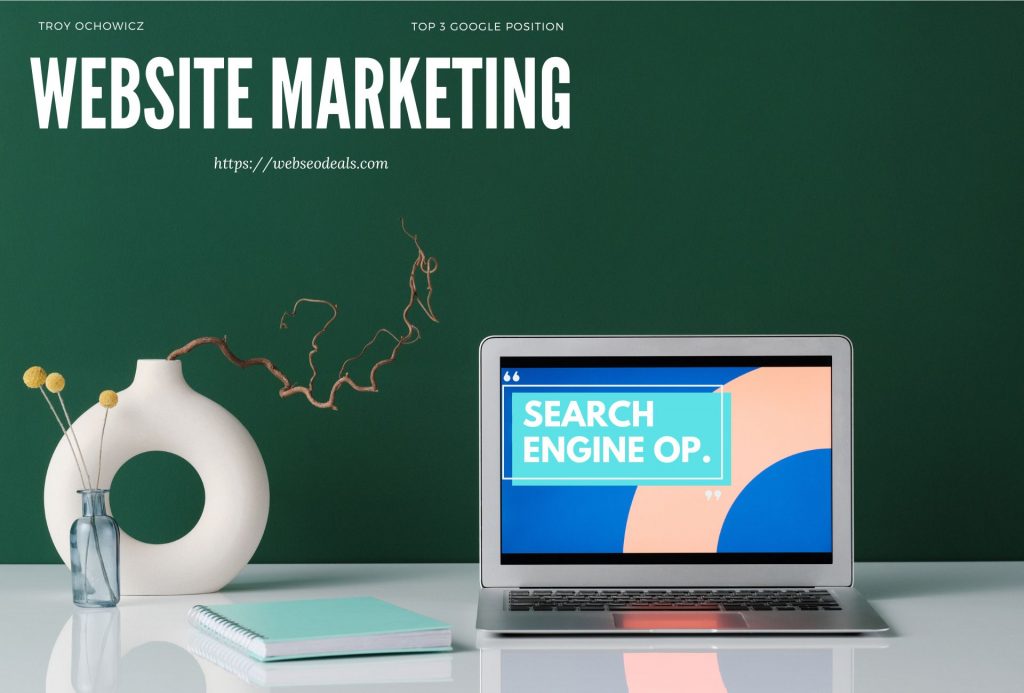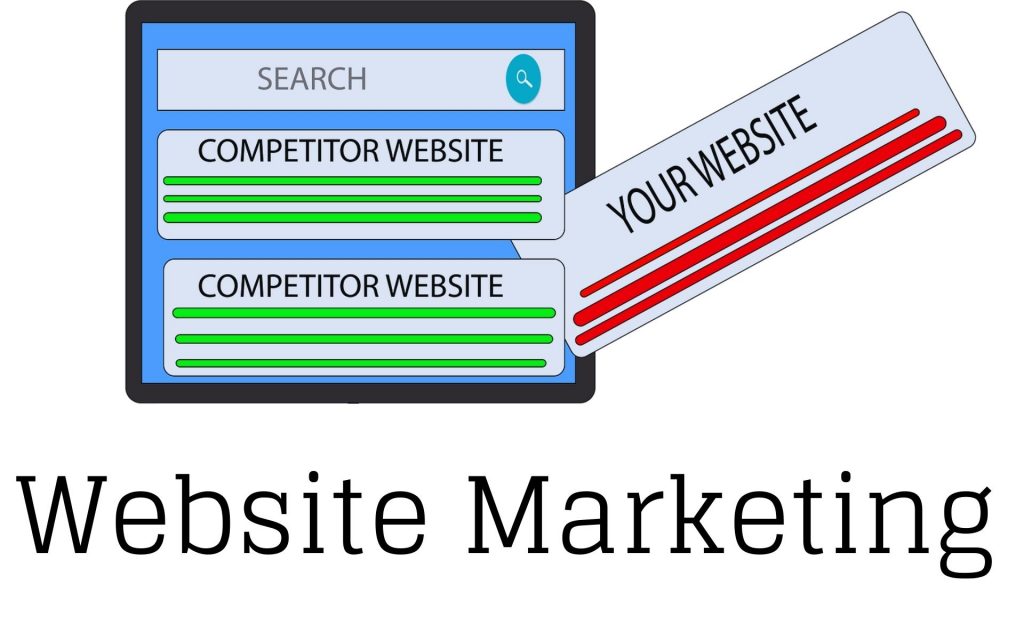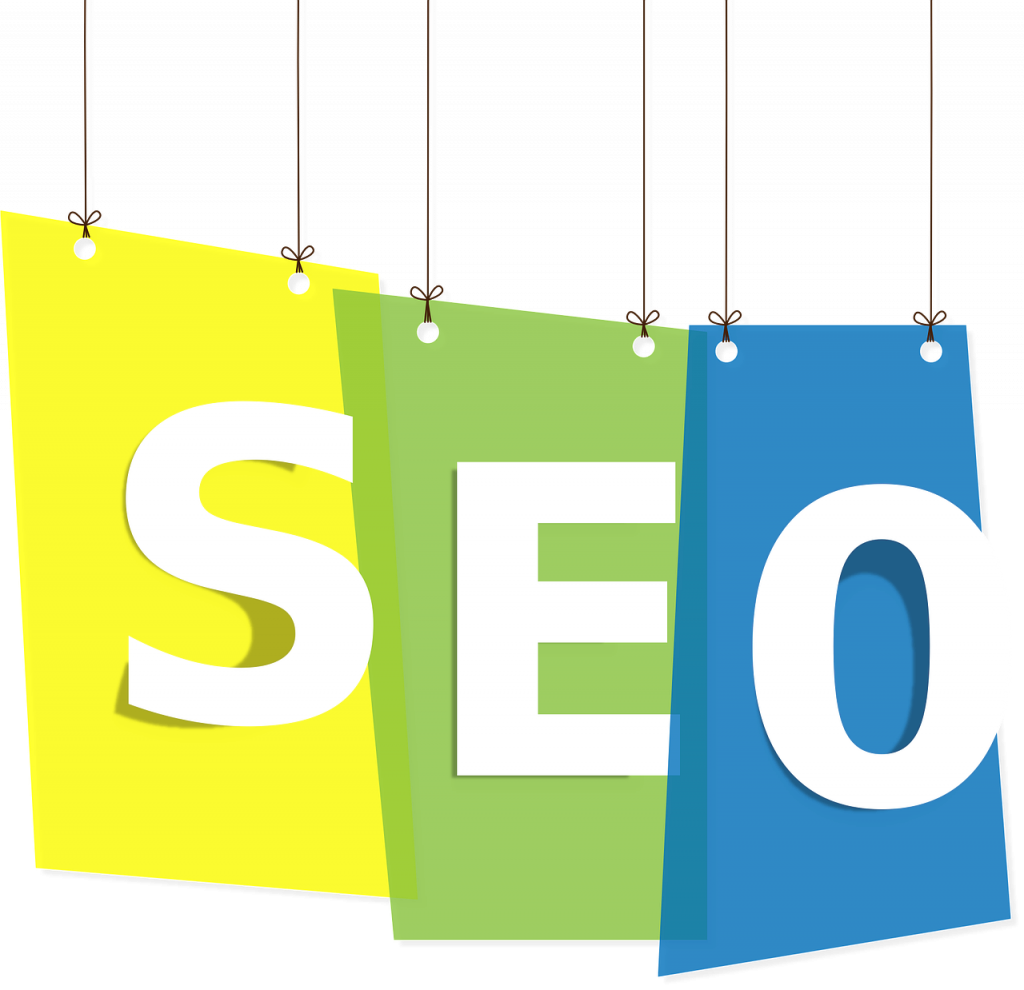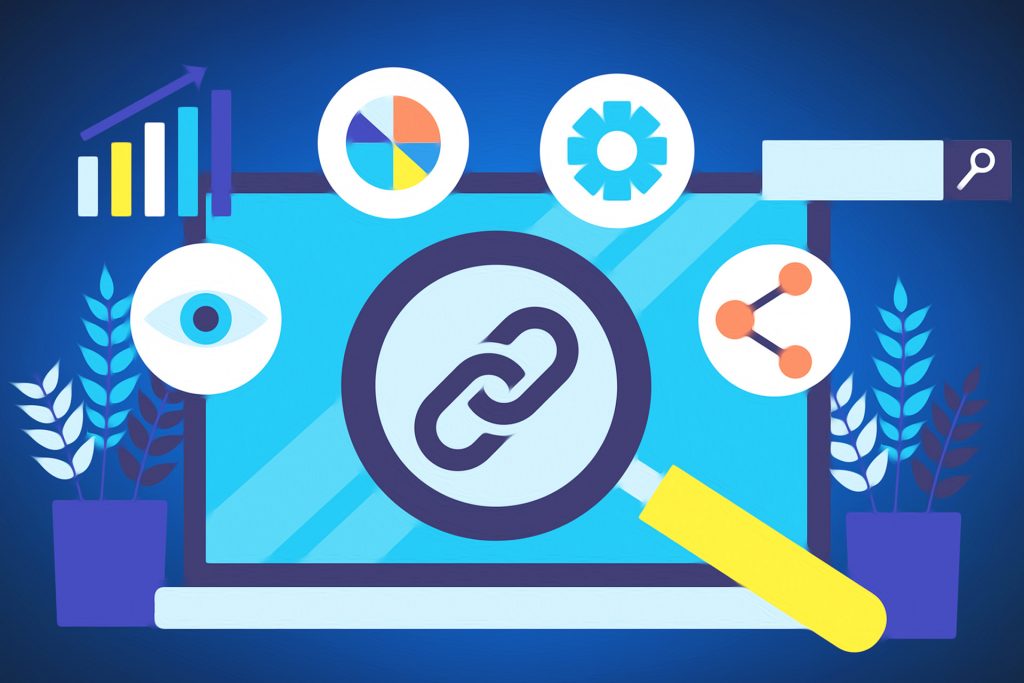
39 Web Marketing Strategies – You’ll Never Believe 34-37!🤯😯
- Introduction to Website Marketing
- The Importance of Content in Website Marketing
- Developing a Digital Marketing Strategy for Website Marketing
- Ecommerce Design Agency and Lead Generation Sites
- Optimizing User Experience for Website Marketing Success
- Online PR
- AI-Powered Personalization
- Attracting and Retaining Website Visitors
- Search Engine Optimization for Website Marketing
- Voice Search Optimization
- Pay-Per-Click (PPC) Advertising
- Zero-Click Search Optimization
- User-Generated Content (UGC)
- Reverse Guest Posting
- Utilizing Targeted Advertising for Website Marketing
- Retargeting
- Promoting Your Website through Free and Paid Online Advertising Channels
- Email Marketing: A Powerful Tool for Website Marketing
- Leveraging Social Media for Website Marketing
- Leveraging Google My Business for Local Website Marketing
- Chatbot Marketing
- Ecommerce Website Marketing
- Local Website Marketing
- B2B Website Marketing
- Video Marketing
- Influencer Marketing
- Podcast Marketing
- Webinar Marketing:
- Viral Marketing
- Mobile Marketing
- Affiliate Marketing
- Gamification Marketing
- Guerrilla Marketing
- Augmented Reality (AR) Marketing
- Neuromarketing
- Virtual Reality (VR) Marketing
- Blockchain-Based Marketing
- Micro-Moments Marketing
- Livestream Marketing
- Ephemeral Content Marketing
- 360-Degree Video Marketing
- Collaborating with Digital Marketing Agencies for Website Marketing Success
- Measuring Website Marketing Success with Analytics Tools
- Measuring Website Marketing Success
- Conclusion
Introduction to Website Marketing
In today’s digital era, website marketing plays a crucial role in promoting businesses and attracting potential customers. Website marketing is the process of promoting your website, products, or services online to increase traffic, boost brand awareness, and ultimately, drive sales. It encompasses a wide range of strategies, including search engine optimization (SEO), content marketing, social media marketing, and email marketing. This article will provide an in-depth look at effective website marketing strategies and tactics to help you maximize your online presence and grow your business.

A well-crafted website marketing strategy can help you reach a larger audience, engage with customers more effectively, and generate a steady flow of targeted traffic to your site. By leveraging the power of social media platform’s, search engines, and other digital marketing tools, you can create a strong online presence and build lasting relationships with your target audience.
In this first section, we will explore the fundamentals of website marketing and how to create a solid marketing strategy that will enable your business to thrive in the competitive online marketplace.
The Importance of Content in Website Marketing
Content plays a pivotal role in website marketing, as it serves as the foundation for attracting and engaging your target audience. High-quality content not only keeps visitors on your site longer but also encourages them to share your content on social media and other platforms. This, in turn, can drive more traffic to your website and increase brand awareness.
Content marketing is a powerful tool for building trust with your audience, showcasing your expertise, and establishing your brand as a thought leader in your industry. By creating valuable and engaging content that speaks directly to the needs and concerns of your potential customer’s, you can attract more visitors and ultimately, convert them into loyal customers.
To develop a successful content marketing strategy, it’s essential to understand your audience and create content that resonates with their interests and preferences. Conducting audience research and utilizing tools like Google Analytics can provide valuable insights into your target market, helping you create content that appeals to them.
In addition to creating quality content, optimizing your content for search engines is crucial for driving organic traffic to your website. By employing SEO best practices, such as using relevant keywords, crafting compelling meta descriptions, and ensuring a user-friendly site structure, you can improve your site’s search engine ranking and increase your visibility to potential customers.
In summary, content plays a critical role in website marketing by attracting and engaging your target audience, building trust, and establishing your brand as an industry expert. By focusing on creating high-quality content and optimizing it for search engines, you can drive targeted traffic to your site and maximize your marketing efforts.
Developing a Digital Marketing Strategy for Website Marketing
A comprehensive digital marketing strategy is essential for maximizing your website marketing efforts. Your digital marketing strategy should encompass various tactics, such as content marketing, social media marketing, email marketing, and paid advertising, to create a cohesive and effective marketing approach.

An effective digital marketing strategy begins with clearly defined goals and objectives. By setting measurable targets, such as increasing website traffic, improving conversion rates, or growing your email list, you can focus your marketing efforts and track your progress over time.
Your strategy should also include a well-defined target audience, ensuring your marketing messages resonate with the right people. Conduct market research to identify your ideal customers’ demographics, interests, and pain points, then tailor your marketing efforts to address their unique needs and preferences.
Ecommerce Design Agency and Lead Generation Sites
For businesses operating in the ecommerce space, collaborating with an ecommerce design agency can help you create a visually appealing, user-friendly, and high-converting online store. These agencies specialize in developing ecommerce websites tailored to your specific needs potential client’s and target audience, ensuring a seamless shopping experience for your customers.
Lead generation sites, such as landing pages and lead capture forms, can also be an essential part of your website marketing strategy. By creating targeted and optimized landing pages that capture user information, you can build a database of potential customers and nurture them through personalized email marketing campaign’s, ultimately converting them into loyal customers.
Optimizing User Experience for Website Marketing Success
User experience (UX) is a critical factor in website marketing success. A website with a seamless, intuitive, and enjoyable user experience can encourage visitors to explore your content, engage with your brand, and ultimately convert into customers.
Responsive web design ensures that your website looks and functions optimally on various devices, including desktop computers, tablets, and smartphones. This adaptability is essential in a world where mobile browsing is increasingly prevalent.
Intuitive navigation and clear calls-to-action guide users through your site, making it easy for them to find the information they seek or complete desired actions such as making a purchase or signing up for a newsletter.
Optimizing page speed is also crucial, as slow-loading websites can frustrate users and lead to higher bounce rates. Utilize web design and development best practices, such as compressing images, minifying CSS and JavaScript files, and leveraging browser caching, to improve your site’s loading times.
Online PR
Online public relations (PR) involves managing your brand’s online reputation and building relationships with industry influencers, bloggers, and journalists. By securing media coverage and mentions, you can enhance your brand’s credibility and drive targeted traffic to your website.
AI-Powered Personalization
As artificial intelligence (AI) continues to advance, its potential to transform website marketing grows. AI-powered personalization involves using machine learning algorithms to analyze user behavior and preferences, enabling businesses to deliver highly targeted, individualized content and experiences to their website visitors. This can lead to increased user engagement, higher conversion rates, and an overall more satisfying user experience. The continued growth of AI technology has the potential to fundamentally change the way businesses approach website marketing.
Attracting and Retaining Website Visitors
Attracting and retaining website visitors is a crucial aspect of website marketing. To achieve this, businesses should focus on providing a seamless user experience, offering valuable content, and implementing effective marketing tactics to keep visitors engaged and encourage them to return.
Web design plays a significant role in providing a positive user experience. A well-designed website that is easy to navigate, visually appealing, and mobile-friendly can significantly impact visitors’ engagement and overall satisfaction. Additionally, utilizing tools such as Google Analytics can help you gain insights into your audience’s behavior and preferences, allowing you to make data-driven decisions to improve your website’s performance and retain visitors.
Search Engine Optimization for Website Marketing

Search engine optimization (SEO) is a critical component of website marketing, as it helps improve your website’s visibility on search engines like Google, Bing, and Yahoo. By optimizing your website for relevant keywords, creating high-quality content, and acquiring authoritative backlinks, you can improve your search engine ranking and drive organic traffic to your site.
To implement an effective SEO strategy, it’s essential to conduct thorough keyword research, optimize your on-page elements (such as title tags, meta descriptions, and URLs), and create a user-friendly website structure. Additionally, staying up-to-date with the latest SEO best practices and algorithm updates can ensure your website remains competitive in the ever-changing digital landscape.
Voice Search Optimization
With the increasing popularity of voice assistants like Amazon Alexa, Google Assistant, and Apple Siri, optimizing your website for voice search is becoming more critical. Voice search optimization involves creating content that is easily understood and indexed by voice search algorithms, such as using conversational language, answering common questions, and providing concise information. As voice search continues to grow in popularity, businesses that optimize their websites for this new form of search are likely to see increased traffic and a competitive advantage.
Pay-Per-Click (PPC) Advertising
Pay-per-click (PPC) advertising, a popular form of web advertising, allows you to pay only when users click on your ads. By optimizing your ad campaigns for relevant keywords and demographics, you can drive high-quality traffic to your website while controlling your advertising costs.
Pay-per-click advertising involves placing ads on search engines, social media platforms, or other websites and paying a fee each time someone clicks on your ad. This marketing strategy can help drive targeted traffic to your website, generate leads, and increase brand visibility. By bidding on relevant keywords and optimizing your ad copy and landing pages, you can maximize your return on investment (ROI).
Zero-Click Search Optimization
Zero-click searches occur when users receive the information they’re looking for directly on the search engine results page (SERP) without needing to click through to a website. Optimizing your website for zero-click searches involves providing concise, accurate information that search engines can display in featured snippets, answer boxes, or other rich results. As search engines continue to evolve, businesses that optimize their websites for zero-click searches can increase visibility and drive traffic.
User-Generated Content (UGC)
User-generated content involves leveraging content created by your customers or audience, such as reviews, testimonials, and social media posts, to promote your brand and products. By showcasing real experiences and opinions from your customers, you can enhance trust, credibility, and drive targeted traffic to your website.
Reverse Guest Posting
Reverse guest posting is a unique twist on the traditional guest posting strategy. Instead of you writing content for other websites, you invite industry influencers, experts, or even your own customers to write content for your website. This can generate buzz, attract a new audience, and encourage social sharing due to the unique content and the guest author’s desire to promote their work.
Utilizing Targeted Advertising for Website Marketing
Targeted advertising plays a crucial role in website marketing, enabling businesses to reach specific audiences with personalized ads that resonate with their interests and preferences. Platforms such as Google AdWords and Facebook Ads offer robust targeting options, including demographics, interests, and behavior, ensuring your ads appear in front of users most likely to engage with your content or products.
Retargeting ads are another effective strategy to re-engage potential customers who have previously visited your website. By placing a tracking pixel on your site, you can identify users who have shown interest in your products or services and display targeted ads to them as they browse other websites or social media platforms.
Retargeting
Retargeting is a marketing strategy that involves displaying ads to users who have previously visited your website or engaged with your brand. By targeting users who have already shown interest in your products or services, you can increase the likelihood of converting them into customers and driving targeted traffic back to your website.
Promoting Your Website through Free and Paid Online Advertising Channels
There are numerous free and paid online advertising channels available to help promote your website and drive traffic. Free online advertising sites, such as online directories, classified ad websites, and social media platforms, can be an effective way to increase your online presence and attract new visitors.
For businesses looking to invest in paid advertising, platforms like Google Ads, Facebook Ads, and LinkedIn Ads offer various targeting options and ad formats to reach your target audience effectively. Combining both free and paid advertising channels can create a well-rounded website marketing strategy that maximizes your online visibility and drives targeted traffic to your site.
Email Marketing: A Powerful Tool for Website Marketing
Email marketing remains one of the most effective digital marketing channels for driving website traffic, nurturing leads, and converting prospects into customers. By building a targeted email list and sending relevant, personalized content to subscribers, businesses can cultivate long-lasting relationships with their audience and encourage repeat visits to their website.
To make the most of email marketing, it’s crucial to develop a well-planned strategy that focuses on delivering valuable content to your subscribers. This can include promotional offers, informative blog posts, and industry news. By providing your audience with useful information and engaging content, you can increase your website traffic and drive conversions.
Leveraging Social Media for Website Marketing
In the digital age, social media has become an indispensable tool for website marketing. With billions of users worldwide, platforms such as Facebook, Instagram, Twitter, and LinkedIn offer businesses unparalleled opportunities to connect with their target audience, increase brand visibility, and drive traffic to their websites.
To make the most of social media for your website marketing efforts, it’s essential to develop a comprehensive social media marketing strategy. This involves identifying the most suitable platforms for your brand, setting clear goals, and creating engaging content that resonates with your audience. Regularly posting and interacting with your followers can help you build a loyal community and foster lasting relationships with your customers.
In addition to organic social media efforts, paid advertising can also be an effective way to reach a larger audience and drive targeted traffic to your website. Platforms like Facebook Ads and Google Ads allow you to create targeted ads that appear in front of users who are most likely to be interested in your products or services. By utilizing these tools, you can enhance your website marketing strategy and maximize your online visibility.
Leveraging Google My Business for Local Website Marketing
Google My Business (GMB) is a powerful tool for local businesses looking to boost their online presence and drive local customers to their websites. By optimizing your GMB listing with accurate and up-to-date information, such as your business name, address, phone number, and hours of operation, you can improve your visibility in local search results and attract more customers.
Encourage satisfied customers to leave reviews on your GMB listing, as positive reviews can increase your credibility and trustworthiness in the eyes of potential customers. Additionally, regularly posting updates, promotions, and events to your GMB listing can help keep your audience informed and engaged with your business.
Utilizing web design and SEO services from reputable agencies can further enhance your website marketing success. These professionals can help you create an attractive, user-friendly website and implement effective SEO strategies to improve your search engine rankings and drive organic traffic to your site.
Chatbot Marketing
Chatbot marketing involves using AI-powered chatbots to engage with website visitors, answer questions, and provide personalized recommendations. As chatbot technology continues to advance, they are becoming more sophisticated and capable of handling complex user interactions. By incorporating chatbots into your website marketing strategy, you can enhance the user experience, provide instant support, and drive conversions.
Ecommerce Website Marketing
Ecommerce website marketing plays a crucial role in driving sales and increasing brand awareness for online businesses. This type of marketing involves utilizing a combination of digital marketing channels, such as SEO, content marketing, social media marketing, email marketing, and paid advertising, to attract potential customers and encourage them to make purchases. By optimizing product descriptions, implementing a responsive web design, and utilizing effective calls-to-action, you can significantly improve your ecommerce website’s user experience and conversion rates.
Local Website Marketing
Local website marketing focuses on promoting your business to customers within a specific geographic area. By optimizing your website for local search, incorporating geo-targeted keywords, and utilizing Google My Business, you can improve your local search engine rankings and increase your online visibility among potential customers in your area. Additionally, local website marketing can involve engaging with customers through local online directories, review sites, and targeted social media campaigns.
B2B Website Marketing
Business-to-business (B2B) website marketing targets other businesses as potential customers, rather than individual consumers. B2B marketing strategies often involve content marketing, SEO, email marketing, and social media marketing on platforms such as LinkedIn to generate leads and build long-term relationships with other businesses. When creating content for B2B marketing, it’s essential to focus on providing valuable, industry-specific information that addresses the unique needs and challenges of your target audience.
Video Marketing
Video marketing is the use of video content to promote a product, service, or brand. With the rise of video-sharing platforms like YouTube, businesses can reach and engage their target audience through visually appealing and informative content. Video marketing can enhance brand awareness, increase customer trust, and drive website traffic.
Influencer Marketing
Influencer marketing involves partnering with influential people in your industry to promote your brand or product. By leveraging the credibility and reach of these individuals, you can expand your brand’s exposure, enhance trust, and drive targeted traffic to your website.
Podcast Marketing
Podcast marketing is the use of podcasts to promote your brand, products, or services. By creating informative and engaging audio content, you can reach a wide audience, establish thought leadership, and drive traffic to your website.
Webinar Marketing:
Webinar marketing involves hosting live or pre-recorded online events to educate, inform, and engage with your target audience. Webinars can help build brand authority, generate leads, and drive website traffic.
Viral Marketing
Viral marketing is a strategy that involves creating content that encourages users to share it widely, thereby increasing brand exposure and website traffic. By leveraging the power of social networks and online communities, businesses can generate buzz and create brand advocates.
Mobile Marketing
Mobile marketing involves reaching and engaging with your target audience through mobile devices, such as smartphones and tablets. By optimizing your website for mobile, creating mobile apps, and utilizing mobile advertising, you can enhance the user experience and drive targeted traffic to your website.
Affiliate Marketing
Affiliate marketing involves partnering with affiliates, such as bloggers or influencers, who promote your products or services in exchange for a commission on sales or leads generated. This marketing strategy can help you expand your reach, drive targeted traffic to your website, and increase sales with a performance-based payment model.
Gamification Marketing
Gamification marketing involves incorporating game elements, such as points, levels, badges, or competitions, into your website marketing strategy to engage and motivate users. By making the user experience more fun and interactive, you can create a sense of competition and community, increase user engagement, and drive website traffic. Examples of gamification marketing include creating a quiz, hosting a contest, or developing an interactive loyalty program.
Guerrilla Marketing
Guerrilla marketing is an unconventional marketing strategy that relies on surprise, creativity, and ingenuity to create a memorable experience and generate buzz. In the context of website marketing, guerrilla tactics might involve creating a viral video or interactive campaign, launching a unique social media challenge, or using street art to promote your website. The key is to create a memorable, surprising, and shareable experience that gets people talking about your brand and visiting your website.
Augmented Reality (AR) Marketing
Augmented reality marketing involves using AR technology to create interactive, immersive experiences that engage and captivate users. By overlaying digital content onto the real world, AR can provide users with an innovative, interactive way to explore and engage with your brand, products, or services. This cutting-edge marketing strategy has the potential to revolutionize the way businesses promote their websites, especially as AR technology becomes more accessible and widespread.
Neuromarketing
Neuromarketing is an emerging field that combines neuroscience, psychology, and marketing to understand and influence consumer behavior. By analyzing brain activity, eye-tracking, and other biometric data, neuromarketing provides insights into how consumers perceive and react to marketing stimuli. This information can be used to optimize website design, content, and marketing strategies, leading to increased engagement, conversion rates, and overall effectiveness.
Virtual Reality (VR) Marketing
Virtual reality marketing involves creating immersive virtual experiences that allow users to engage with your brand, products, or services in a simulated environment. With VR technology becoming more affordable and accessible, businesses can create virtual showrooms, product demonstrations, or branded experiences that can drive website traffic and generate buzz. As VR technology continues to advance, businesses that incorporate VR into their website marketing strategies are likely to see increased engagement and a competitive edge.
Blockchain-Based Marketing
Blockchain technology, best known for its role in cryptocurrencies, has the potential to transform various aspects of digital marketing, including website marketing. By offering decentralized, transparent, and secure solutions, blockchain can enable new marketing models, such as decentralized affiliate networks, transparent influencer marketing, and tokenized loyalty programs. As blockchain technology becomes more widely adopted, businesses that incorporate it into their website marketing strategies may benefit from increased trust, efficiency, and innovation.
Micro-Moments Marketing
Micro-moments marketing focuses on targeting consumers during specific moments of need or intent, such as when they are looking for information, making a purchase decision, or seeking entertainment. By optimizing your website and content for these micro-moments, you can provide users with relevant and timely information, increasing the likelihood that they will choose your brand over competitors. As consumer attention spans continue to decrease, businesses that can effectively capture and engage users during these critical moments are likely to see increased website traffic and conversions.
Livestream Marketing
Livestream marketing involves using real-time video streaming platforms to engage with your audience, showcase your products or services, and build brand awareness. By hosting live events, Q&A sessions, or behind-the-scenes looks at your business, you can create an authentic, interactive experience that captures the attention of your audience and drives website traffic.
Ephemeral Content Marketing
Ephemeral content marketing focuses on creating short-lived, disappearing content that encourages users to engage with your brand before the content vanishes. Popular on platforms like Instagram Stories and Snapchat, ephemeral content can create a sense of urgency, exclusivity, and excitement, driving users to your website to learn more or take advantage of limited-time offers.
360-Degree Video Marketing
360-degree video marketing involves creating immersive video content that allows users to explore a full 360-degree view of the environment, product, or experience. This unique form of content provides an engaging, interactive experience that can captivate users and drive website traffic. By incorporating 360-degree video content into your website marketing strategy, you can differentiate your brand and create memorable experiences for your audience.
Collaborating with Digital Marketing Agencies for Website Marketing Success
Partnering with a website marketing agency or a digital web agency can be an excellent way to ensure your website marketing efforts are well-executed and yield the desired results. These agencies typically offer a range of services, such as web design, content marketing, SEO, social media marketing, and paid advertising, allowing you to create a comprehensive marketing strategy tailored to your specific needs.
When choosing a digital marketing agency or a web marketing agency, it’s essential to consider factors such as their experience, portfolio, client testimonials, and communication style. The best digital marketing agency websites often showcase their work and client success stories, giving you an idea of their capabilities and expertise.
Measuring Website Marketing Success with Analytics Tools
Analytics tools, such as Google Analytics and Google Search Console, are invaluable for tracking and measuring the success of your website marketing efforts. These tools provide insights into key performance indicators (KPIs) such as website traffic, conversion rates, search result and user behavior, enabling you to make informed decisions and optimize your marketing strategy.
By regularly analyzing your website’s performance data, you can identify trends and patterns, uncover areas for improvement, and make data-driven adjustments to your marketing efforts. For instance, if you notice that a specific blog post is driving a significant amount of traffic, you might consider creating more content on similar topics or promoting that post through social media and email marketing campaign’s.
Additionally, analytics tools can help you track the performance of your online advertising campaigns. Platforms like Google AdWords and Facebook Ads Manager provide detailed reports on metrics such as impressions, clicks, and conversions, allowing you to optimize your ads and improve your return on investment (ROI).
Measuring Website Marketing Success
Tracking and measuring the success of your website marketing efforts is essential to optimize your strategy and achieve better results. Tools like Google Analytics, Google AdWords, and Facebook Ads Manager can provide valuable data on your website’s performance, audience demographics, and user behavior, enabling you to make informed decisions and fine-tune your marketing efforts.
Key performance indicators (KPIs) such as website traffic, conversion rates, and average time on site can help you assess the effectiveness of your digital marketing campaign and identify areas for improvement. By regularly analyzing your website’s & performance data and making data-driven adjustments to your marketing strategy, you can maximize your website marketing success and achieve your business objectives.
Conclusion
In conclusion, a successful website marketing strategy involves a multifaceted approach that incorporates various tactics, such as targeted advertising, user experience optimization, local marketing, digital marketing strategy development, analytics, and collaboration with specialized agencies. By leveraging these strategies and resources, you can create a powerful and effective website marketing plan that drives traffic, engages visitors, and ultimately boosts your online presence and business success.
What are the key components of a successful website marketing strategy?
A successful website marketing strategy includes content marketing, search engine optimization (SEO), social media marketing, email marketing, paid advertising, analytics, and user experience optimization.
How can content marketing help improve website marketing efforts?
Content marketing involves creating and sharing valuable, relevant content to attract, engage, and convert your target audience. This can help drive organic traffic, improve search engine rankings, and establish your brand as an industry authority.
Why is search engine optimization (SEO) important for website marketing?
SEO is essential for website marketing because it helps improve your website’s visibility on search engine results pages (SERPs). By optimizing your site’s content, structure, and off-site factors, you can attract more organic traffic and potential customers.


